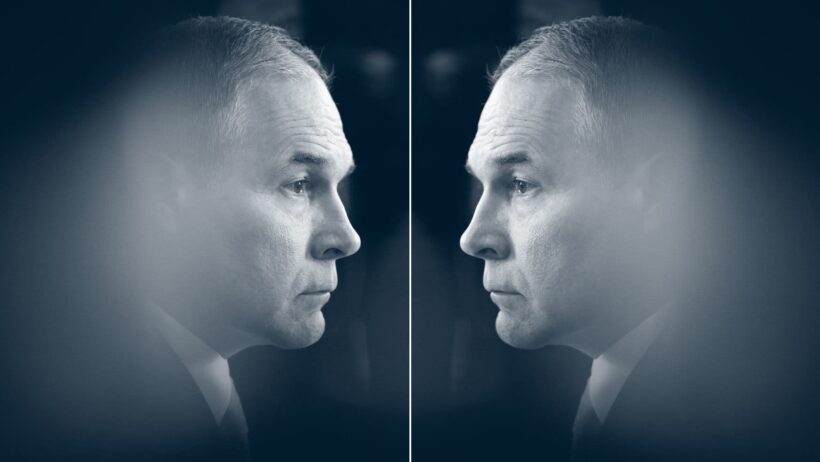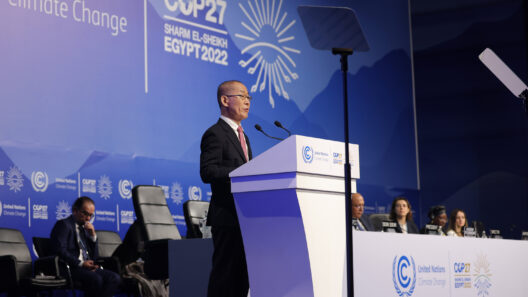Global warming is no longer a distant threat; it is a palpable reality that calls for urgent attention. The question arises: are we morally responsible for stopping global warming? This inquiry extends beyond scientific data or economic ramifications; it delves into ethical considerations, existential implications, and the moral obligations of individuals and societies alike. As we explore this multifaceted dilemma, we may find that our perspective on responsibility must shift in order to foster genuine curiosity and inspire action.
At the heart of the moral responsibility debate is the concept of intergenerational equity. People today live in a unique historical moment, where the decisions made will reverberate through time, affecting generations yet to be born. It is imperative to consider the ethical obligations to future inhabitants of the planet. Should we, who benefit from industrial advancements, leave behind a world fraught with peril and instability? Ethical theories such as utilitarianism advocate for actions that maximize overall happiness and minimize suffering. Thus, in failing to act against global warming, we risk inflicting immense suffering on future generations.
Moreover, one must acknowledge the global inequities that exacerbate the dynamics of climate change. Industrialized nations, which have primarily contributed to greenhouse gas emissions, have a disproportionate moral responsibility compared to developing nations. The historical context reveals that affluent countries have benefited enormously from fossil fuel consumption while poorer countries suffer the most severe consequences. As rising sea levels threaten to engulf coastal areas, and extreme weather patterns wreak havoc on agriculture, it becomes increasingly difficult to ignore the ethical implications of our actions. Should those who have exploited the Earth’s resources not do their utmost to mitigate the damage they have wrought?
As we shift our gaze to individual responsibility, the landscape becomes complex. Each person’s carbon footprint is influenced by a myriad of choices, from dietary habits to transportation methods. In contexts of pervasive consumerism, it is easy to feel disempowered and to believe that individual actions are merely drops in an ocean of climate change. However, collective actions can culminate into significant change. Thus, the moral imperative lies not only in recognizing one’s carbon footprint but also in advocating for systemic change. Individuals can galvanize communities, push for better policies, and hold corporations accountable for their environmental impact. The concept of moral responsibility then transcends individual actions and fuses with civic engagement.
The role of corporations in combating climate change is another critical facet of this ethical puzzle. Companies that prioritize profit over environmental stewardship are often perceived as morally culpable for perpetuating global warming. Corporations have the power to invest in sustainable technologies, reduce emissions, and drive innovative practices that align with ecological preservation. When consumers advocate for transparency and ethical practices, they can engender corporate responsibility. The question remains: how many consumers are willing to hold businesses accountable for their ecological impacts? Raising awareness and educating consumers about the implications of their purchasing decisions cultivates a culture that demands corporate ethics.
Furthermore, the discourse surrounding global warming often hinges on political ideologies which can obscure the moral issues at hand. Climate change is not merely a partisan topic; it is an existential threat that transcends borders, ideologies, and social strata. This realization is key to forming a united front against global warming. Engaging with those who may not share the same beliefs can pique curiosity and open new avenues for dialogue. Through conversations and collaborations across different perspectives, a more nuanced understanding of moral responsibility can flourish.
The moral responsibility to combat global warming extends beyond straightforward obligations; it encompasses a profound sense of stewardship for the planet. An ethical framework rooted in care for the environment can cultivate a connection to nature that transcends consumerist tendencies. This calls into question: What does it mean to be a responsible inhabitant of Earth? It involves appreciating the intricate web of life that sustains us and recognizing our role as custodians rather than conquerors. By adopting a paradigm that emphasizes interconnectedness, we may find that our moral obligation extends to a myriad of living beings that are affected by climate change.
Additionally, the role of education in fostering a sense of moral responsibility cannot be overstated. Environmental education instills awareness and empowers individuals with the knowledge necessary to combat global warming. It equips future leaders with the tools to innovate, advocate, and inspire. Through comprehensive education focused on scientific literacy, social justice, and ethical implications, we can nurture a generation poised to take decisive action against climate change. In essence, the moral responsibility to halt global warming must be integral to our educational systems, thus shaping a holistic worldview that prioritizes environmental stewardship.
In conclusion, the question of moral responsibility in the context of global warming is a complex tapestry woven from ethical considerations, historical contexts, and modern challenges. It is about recognizing our obligations to future generations, addressing inequities, and redefining individual and corporate accountability. Most importantly, it requires a shift in perspective that views climate action not as a burden but as a calling. As stewards of this planet, our collective responsibility is to cultivate curiosity and navigate the moral landscape of environmental stewardship with intention and resolve. The fight against global warming is not solely an environmental issue; it is a profound ethical commitment to protect the Earth for those who will inherit it after us.








